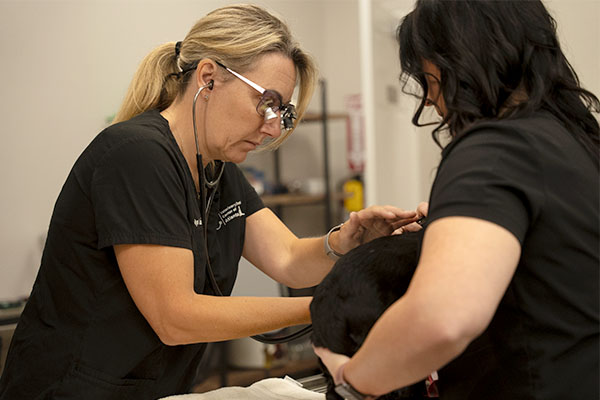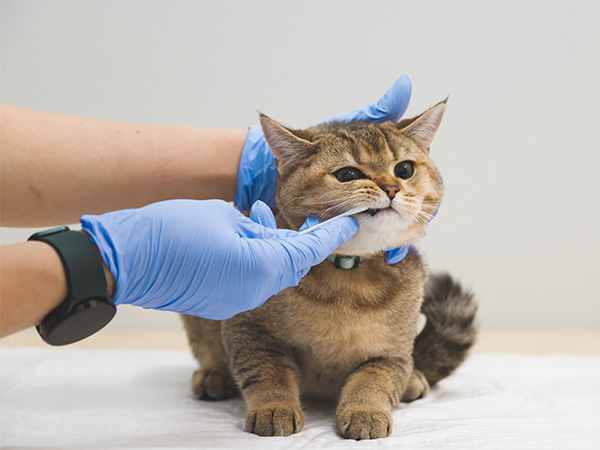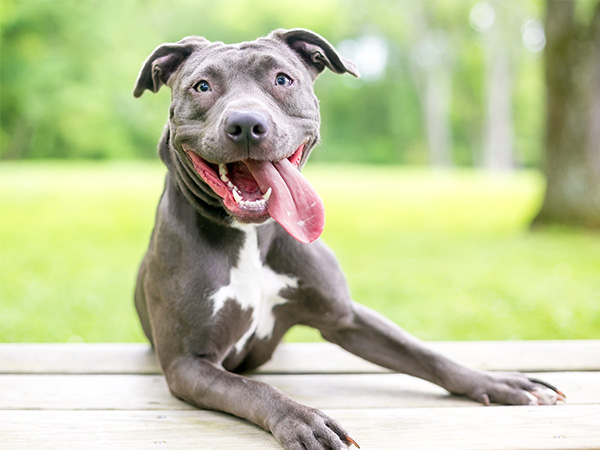Pet Tooth
Extractions
At our Veterinary Dental Center of Atlanta, we provide top-notch dental care for your pets. Tooth extractions in pets, much like in humans, can be crucial for preventing and treating oral pain and other health issues. Whether your cat or dog needs an extraction due to decay, injury, or for other health reasons, our team is here to ensure they receive the best possible care.
What Causes Tooth Extractions in Pets?
Pets, much like their human companions, can suffer from a variety of dental issues. Common reasons for extractions include severe decay, periodontal disease, broken teeth, or overcrowding that affects normal eating and oral hygiene. In both cats and dogs, maintaining oral health with regular check-ups can minimize the need for such procedures.
Our Approach to Tooth Extractions
At VDCA, our priority is the comfort and safety of your pet. Before performing any extractions, we conduct a thorough examination, including dental X-rays, to understand the full scope of the issue. This careful planning helps us ensure that the extraction is necessary and performed as efficiently as possible.
- Sedation and Anesthesia: We use the safest sedation and anesthesia protocols tailored to your pet’s specific needs. Our trained veterinary team monitors your pet’s vital signs throughout the procedure to ensure their safety.
- Pain Management: Post-procedure pain management is a critical aspect of our care. We provide appropriate pain relief to help your pet recover comfortably at home.
- Aftercare: Our team offers detailed aftercare instructions and support. We’re here to answer any questions and ensure your pet’s recovery is smooth and swift.
Cat Tooth Extraction
Tooth extraction in cats is often required to manage dental disease, such as tooth resorption—a common condition that affects a significant portion of the adult feline population. Other reasons include severe periodontal disease or injury. Our veterinary dental team is adept at handling the delicate nature of feline dental issues, ensuring minimal stress and maximum comfort for your feline friend.
Procedure for Cats
-
Initial Assessment
Each cat receives a thorough oral examination and dental X-rays under anesthesia to accurately assess the health of their teeth and gums. This step is crucial in identifying hidden issues that could affect your cat’s overall health.
-
Extraction Technique
We use specific tools and techniques designed for cats’ unique dental anatomy to ensure precise and effective extractions with minimal impact on surrounding tissues.
-
After-Care
Post-procedure, we focus on pain management and provide soft food recommendations and a quiet recovery environment to help your cat heal quickly and comfortably.
Cat Tooth Extraction Recovery
-
Pain Management
Most cats require pain medications for a few days after the extraction.
-
Signs of Infection
Owners should watch for signs of infection after cat tooth extraction, such as swelling, excessive redness, or discharge. Immediate veterinary attention is required if any of these signs are observed.
-
Feeding
Initially, feed your cat soft food that is easy to chew and swallow while the healing process takes place.
Dog Tooth Extraction
Dogs may require extractions due to advanced periodontal disease, broken teeth, or crowding. Larger breeds, in particular, are prone to certain dental issues that can necessitate extractions. Our approach is tailored to the specific needs of each dog, focusing on pain-free extraction and quick recovery.
Procedure for Dogs
-
Pre-Extraction Evaluations
We begin with a comprehensive evaluation, including oral assessments and X-rays, to determine the full extent of dental issues.
-
Techniques and Equipment
We use state-of-the-art surgical tools to perform extractions that minimize tissue damage and promote faster healing.
-
After-Care
We provide detailed guidance on post-operative care, including suitable diet modifications, pain management, and oral hygiene practices to ensure a smooth recovery for your dog.
Dog Tooth Extraction Recovery
-
Pain Management
Most dogs require pain medications for a few days after the extraction.
-
What to Feed Dog After Tooth Extraction
Start with soft foods that are gentle on the gums. Options like softened dry food, canned food, or formulated post-surgery diets help ensure your dog maintains nutrition without discomfort.
-
Complication Symptoms to Monitor
Keep an eye out for dog tooth extraction complications symptoms, including excessive bleeding, swelling, or signs of pain that don’t decrease with time.
Why Choose Us for Your Pet’s Tooth Extraction?
At the Veterinary Dental Center of Atlanta, we understand that the thought of your pet undergoing a tooth extraction can be stressful. That’s why we’re dedicated to using the most advanced, pet-friendly methods available while prioritizing the comfort and safety of your beloved furry friend. Our veterinary dental team is trained in both cat and dog dental anatomy and brings compassionate, effective care to every procedure. Contact us today to learn how we can help your pet smile brighter.



